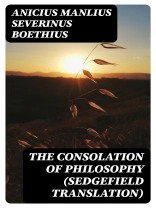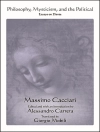Anicius Manlius Severinus Boethius’s ‚The Consolation of Philosophy‘ is a masterpiece of philosophical literature, written in the form of a dialogue between Boethius and Lady Philosophy as he awaits his execution. Boethius explores complex existential and ethical questions, drawing on classical and Christian thought to find solace in the face of adversity. The work is a blend of prose and poetry, demonstrating Boethius’s versatility as a writer and deep thinker. Set against the backdrop of political turmoil in 6th century Rome, the book reflects Boethius’s own experiences and struggles. Boethius’s lucid prose and profound insights make ‚The Consolation of Philosophy‘ a timeless classic, with its themes of fate, free will, and the nature of happiness still relevant today. Readers interested in exploring the intersection of philosophy and literature will find this work both engaging and thought-provoking.
Über den Autor
Anicius Manlius Severinus Boethius (c. 480-524 AD) is a towering figure in the annals of Western philosophy and literature, often regarded as the last of the Roman intellectuals and one of the earliest scholastic philosophers. Born into a prestigious Roman family, Boethius went on to assume a number of important political positions, including senator and consul, before falling out of favor with the Ostrogothic king, Theodoric the Great. This misfortune led to his imprisonment and eventual execution, during which he composed his seminal work, ‚The Consolation of Philosophy‘ (Sedgefield translation). In this magnum opus, Boethius addresses the vicissitudes of human fortune, the fluctuating nature of happiness, and the pursuit of the highest good. The timeless text merges Neoplatonic and Christian thought, reflecting Boethius‘ profound engagement with Greek philosophy, particularly the teachings of Plato and Aristotle. ‚The Consolation of Philosophy‘ has had a lasting influence on Western thought, contributing significantly to medieval Christian philosophy and Renaissance humanism. The elegant prose and poetic meter of the text reveal Boethius‘ literary finesse, firmly establishing his reputation as a philosopher-poet. The work has been translated numerous times, and Sedgefield’s English translation has contributed to its accessibility and enduring legacy. His intellectual contributions continue to resonate with scholars and readers interested in the intersection of philosophy, theology, and literary form.












